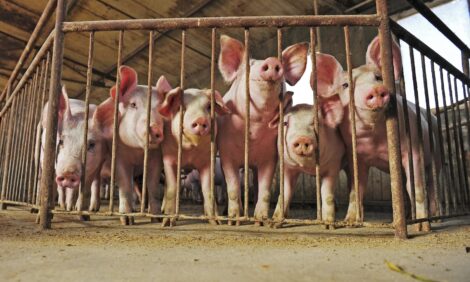



Argentina farmers worry about crop amid global wheat shortage
Many farmers are switching to soybean productionDrought is only the beginning of worries for growers like Juan Francisco Arregui in Argentina's breadbasket farmlands, who the world is relying on more than usual these days to fill a supply crunch of the grain needed to make bread and flour, reported Reuters.
"This season for wheat is complicated," Arregui told Reuters, as he stood in a dusty field that he said had not received rainfall for two months. He said the crop needs rain to arrive soon but weather forecasts were not promising.
In addition to prolonged dry weather, spiking fertiliser costs and political uncertainty over export rules are prompting him and other farmers to devote more land to soybeans and cut back on land devoted to wheat in Argentina, the world's No. 6 exporter of the grain.
While there was enough moisture to plant the seeds, "there is not much left," he said. "It means that the wheat crop is not sure by any means. We can get it started, but hey then we are waiting for rain."
Argentina had a record 2021/22 wheat harvest of 22.4 million tonnes, so global grain markets had hoped the country could help fill the shortfall of grain lost after Russia's invasion of Ukraine. The conflict between the two major wheat exporters has sent prices soaring.
But now, both of Argentina's main grains exchanges, Buenos Aires and Rosario, have cut wheat planting forecasts and warned of more cuts if the weather does not improve.
"Today anything that goes wrong with wheat is more important and means greater losses. That is what we are seeing," said Cristian Russo, head agronomist at the Rosario grains exchange which estimates a harvest of 18.5 million tonnes in a best case scenario.
The exchange has warned about the worst wheat planting conditions in 12 years and says sowing of the grains has been stuck at 65% by the dryness, risking lots being left empty.
The weather outlook is not promising.
"In the short term, the rain trend is still very scarce," said Buenos Aires-based meteorologist Leonardo De Benedictis, adding their could be some limited and isolated showers.
FERTILISER AND POLITICS
In addition to sparking food security concerns and stoking global inflation, the Russia-Ukraine fighting has also sent fertiliser prices soaring. Russia is a major global supplier, and the loss of Russian fertiliser has hit farmers from the United States to South America.
Arregui said this season he paid $1,600 per tonne for phosphate fertilizer, more than double the $700 he paid a year ago. His cost of urea doubled to $1,100 per tonne. This was pushing him away from wheat to soy, which needed lower investment.
Concerns over government intervention also loom large. Authorities in Argentina are trying to rein in domestic inflation running at 60%. The government has kept a lower cap on wheat exports than last year, raised export tariffs on soymeal and oil and threatened higher taxes for wheat, although there is not enough support in congress for that step.
Wheat exports for the 2022/23 cycle are currently capped at 10 million tonnes, from 14.5 million tonnes in the previous campaign, though this limit could later be raised.
"Here you go to bed on a Sunday and on Monday you don't know what news you're going to find," said farmer Arregui, referring to shifting government policy.
"Every day they are making decisions that indirectly affect what you do and it's a terrible uncertainty, you can't plan anything. It really costs you a lot every day."








